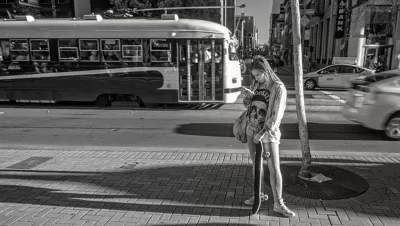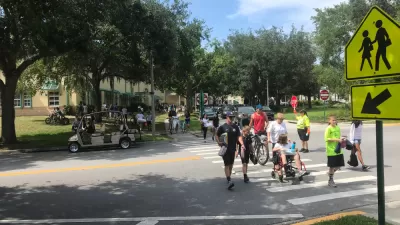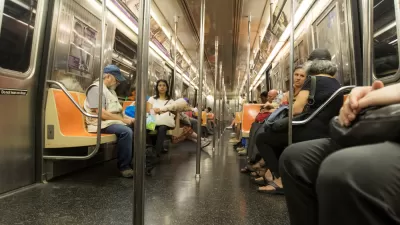Policymakers and venture capital firms love the idea of Mobility-as-a-Service. The public hasn't proven as receptive, despite the willingness to download apps by the millions.

David Zipper writes on the stalled progress of Mobility-as-a-Service companies in capturing the hearts and minds of the world's commuters and movers.
Zipper defines Mobility as a Service (MaaS) as an online platform, usually an app, that allows users to choose from all available transportation modes.
Count Uber among the companies championing the idea of MaaS, and the market has been flooded with apps hoping to deliver on the concept: "MaaS’s most prominent champions have been a group of popular startups offering slick apps like Citymapper, Transit and MaaS Global (the company behind Whim)." Zipper also notes that cities as geographically disparate as Berlin and Louisville have gotten into the MaaS game.
The public has responded with interest from these efforts by the private and public sectors: "Millions of users across Europe, North America, and Asia have downloaded these apps, and venture capital firms endorsing their vision of a multimodal urban future have invested tens of millions of dollars."
But that interest is proving tentative and potentially temporary. "MaaS’s momentum ('MaaSmentum'?) is at risk of stalling," according to Zipper. "To date, MaaS companies have found limited traction among urban residents, even in favorable markets," according to Zipper."
The article includes a lot more detail about the challenges in building consumer preference and commercial traction for MaaS platforms.
FULL STORY: The Problem With ‘Mobility as a Service’

Maui's Vacation Rental Debate Turns Ugly
Verbal attacks, misinformation campaigns and fistfights plague a high-stakes debate to convert thousands of vacation rentals into long-term housing.

Planetizen Federal Action Tracker
A weekly monitor of how Trump’s orders and actions are impacting planners and planning in America.

In Urban Planning, AI Prompting Could be the New Design Thinking
Creativity has long been key to great urban design. What if we see AI as our new creative partner?

How Trump's HUD Budget Proposal Would Harm Homelessness Response
Experts say the change to the HUD budget would make it more difficult to identify people who are homeless and connect them with services, and to prevent homelessness.

The Vast Potential of the Right-of-Way
One writer argues that the space between two building faces is the most important element of the built environment.

Florida Seniors Face Rising Homelessness Risk
High housing costs are pushing more seniors, many of them on a fixed income, into homelessness.
Urban Design for Planners 1: Software Tools
This six-course series explores essential urban design concepts using open source software and equips planners with the tools they need to participate fully in the urban design process.
Planning for Universal Design
Learn the tools for implementing Universal Design in planning regulations.
Gallatin County Department of Planning & Community Development
Heyer Gruel & Associates PA
JM Goldson LLC
City of Camden Redevelopment Agency
City of Astoria
Transportation Research & Education Center (TREC) at Portland State University
Jefferson Parish Government
Camden Redevelopment Agency
City of Claremont





























